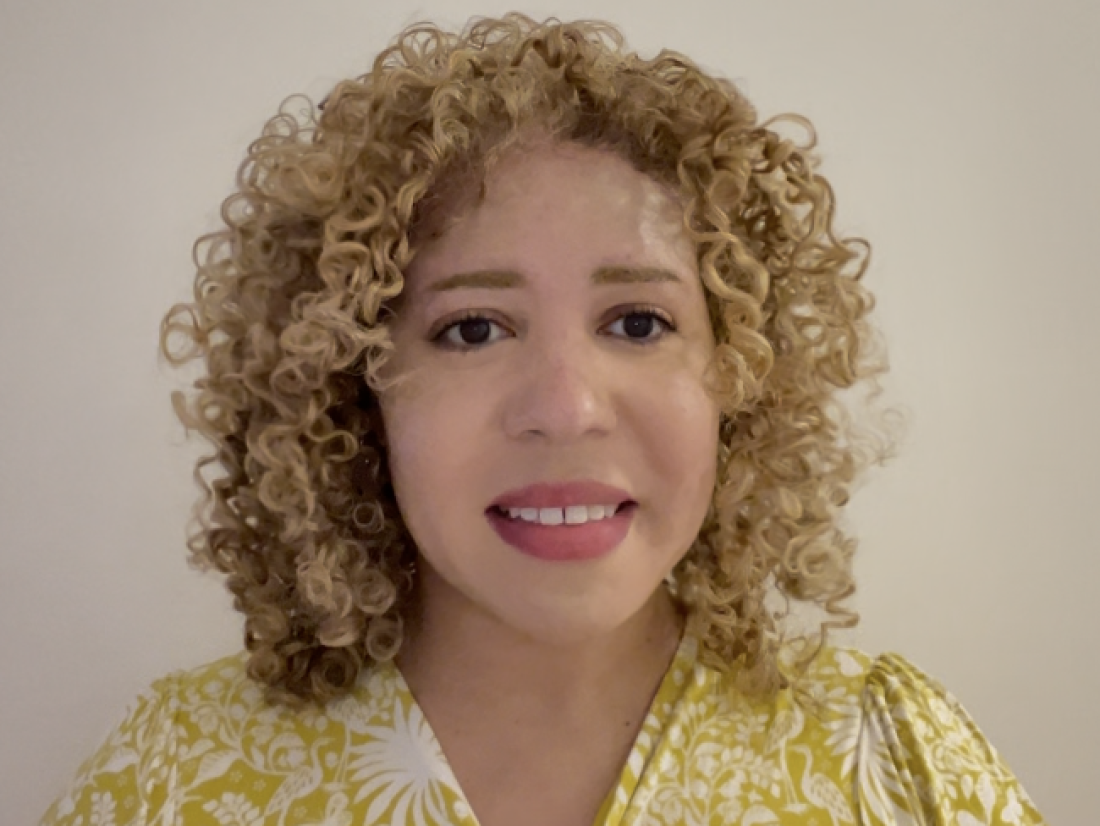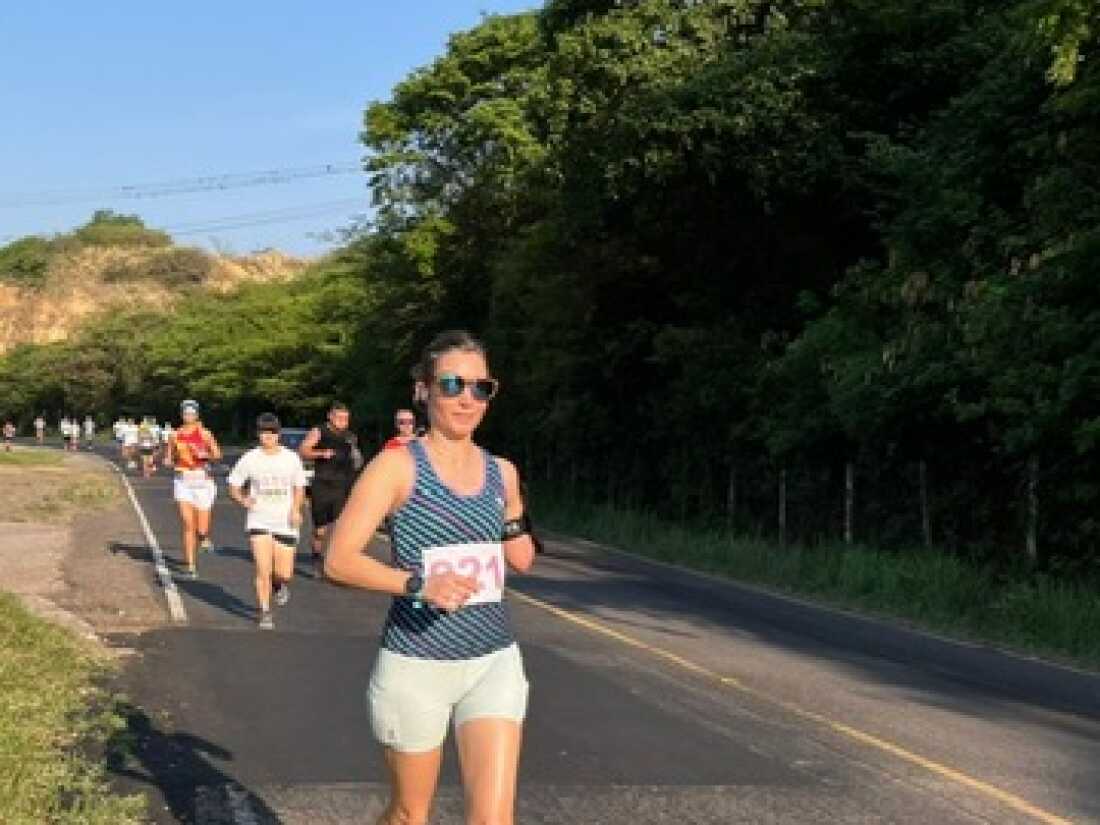Practically 300 readers shared their incapacity tales with NPR. That is what they need you to find out about residing with a incapacity.
Courtesy of Laura Williams, Hannah Soyer, Denise DiNoto, Marty Slighte, Kristen Bettega, Rami Ungar, Mike Fitzsimmons, Sara Burback, Kathy Hyde and Rebekah Taussig.
cover caption
toggle caption
Courtesy of Laura Williams, Hannah Soyer, Denise DiNoto, Marty Slighte, Kristen Bettega, Rami Ungar, Mike Fitzsimmons, Sara Burback, Kathy Hyde and Rebekah Taussig.
July is Incapacity Satisfaction Month, an occasion devoted to celebrating the distinctive strengths and contributions individuals with disabilities have made to society. Within the U.S., the celebration coincides with the anniversary of the Individuals with Disabilities Act, which was signed into regulation on July 26, 1990, by former President George H.W. Bush.
To rejoice this month, we requested readers and listeners to share their experiences with incapacity. We wished to know: What’s one factor you want individuals knew about residing with a incapacity?
Overwhelmingly, you informed us that disabilities aren’t one measurement suits all. We acquired solutions from individuals with disabilities starting from the bodily to the psychological, developmental and cognitive. Practically everybody emphasised that not all disabilities are seen or instantly recognizable from taking a look at somebody.
However these frequent refrains have been additionally accompanied by variations of opinion. “Keep in mind that one individual’s expertise is their very own, regardless of their affinity teams,” Laura Williams of Philadelphia mentioned. “Their private, particular person actuality exists alongside the realities of hundreds of thousands of various individuals.”

Laura Williams was born with a whole congenital coronary heart block. She says, “Residing with a uncommon, invisible, dynamic incapacity causes me oftentimes to assume up extra questions than solutions.”
Courtesy Laura Williams
cover caption
toggle caption
Courtesy Laura Williams
“Incapacity is huge, diversified and delightful,” Hannah Soyer of Des Moines, Iowa., mentioned. “My lived expertise as a queer disabled girl is exclusive to me, as is the lived expertise of each different disabled individual.”
The practically 300 responses from NPR readers characterize a large breadth of disabled experiences. Although nobody individual’s story is common, these have been among the classes about residing with a incapacity that stood out most.

Hannah Soyer has spinal muscular atrophy, a type of muscular dystrophy and a type of paralysis.
Courtesy Hannah Soyer
cover caption
toggle caption
Courtesy Hannah Soyer
Responses have been edited for size and readability.
It might occur to you
“I want individuals have been conscious of how sudden it may be and the way no quantity of ‘wholesome’ consuming, exercising or wellness tradition will spare you from turning into disabled,” Ariel Taranski of Memphis, Tenn., mentioned. Taranski acquired a postural orthostatic tachycardia syndrome (POTS) prognosis when she was 19, after years of unexplained signs. POTS is a sort of dysautonomia, which stems from dysfunction within the autonomic nervous system. “I used to be 14 once I first fainted, and earlier than that, I used to be seemingly wholesome. I performed a number of sports activities, did theatre, and had boundless power till, simply at some point, I did not.

Denise DiNoto has a degenerative neuromuscular illness. “It requires creativity, govt functioning expertise, flexibility, and stamina,” she says.
Courtesy Denise DiNoto
cover caption
toggle caption
Courtesy Denise DiNoto
Denise DiNoto has had a degenerative neuromuscular illness her complete life. The 50-year-old needs individuals to know that “incapacity isn’t a destiny worse than loss of life. She factors out that “you’ll be able to adapt, and you’ll in case you instantly turned disabled.”
“Most individuals will turn out to be disabled someday earlier than they die,” Marty Slighte, who has Ehlers-Danlos syndrome, mentioned. “Disabled individuals are similar to you. Now we have hopes and desires, needs, and needs. We love and must be cherished.”

It took Marty Slighte 52 years to be identified with a congenital dysfunction.
Courtesy Marty Slighte
cover caption
toggle caption
Courtesy Marty Slighte
Incapacity is a spectrum
The identical incapacity can have an effect on every individual in another way. Even for people, a incapacity can really feel completely different day-to-day. “I’ve good days and unhealthy days, generally with important swings in between,” Kristen Kingzett, who has juvenile idiopathic arthritis, mentioned. “So, in case you see an individual doing one thing at some point and so they say they can not do that very same factor a distinct day, that does not imply that they are mendacity, scamming, or lazy.”

Kristen Bettega has despair. Even throughout her so-called “regular instances,” she says despair is in the back of her thoughts.
Courtesy Kristen Bettega
cover caption
toggle caption
Courtesy Kristen Bettega
“Some individuals have disabilities that come and go,” Kristen Bettega mentioned. Nobody questions that main bodily illnesses like most cancers develop after which go into remission. I want extra individuals knew that different disabilities are the identical. If I would like intermittent day off for despair however can work most days, that does not imply I’m faking despair.

Rami Ungar has autism, ADHD, anxiousness and albinism. “I truthfully do not assume I actually understood what residing with incapacity was like till I received to my grownup years,” he says.
Courtesy Rami Ungar
cover caption
toggle caption
Courtesy Rami Ungar
Some readers mentioned that their disabilities do not at all times get in the best way of their lives. “I’ve a great job, I personal my own residence, and I’ve revealed 5 books and several other quick tales,” Rami Ungar of Columbus, Ohio, mentioned. “However in case you discovered I used to be on the spectrum, had ADHD and sometimes had anxiousness assaults earlier than all that, you won’t assume I used to be able to doing all that. And you’ll be lifeless flawed.”

Mike Fitzsimmons turned the primary individual with Spina Bifida to complete an ultramarathon in 2022.
Courtesy Mike Fitzsimmons
cover caption
toggle caption
Courtesy Mike Fitzsimmons
Many others, like Mike Fitzsimmons, who has Spina Bifida, acknowledged their accomplishments. “I can do laborious and considerably excessive issues,” he mentioned. “I turned the primary individual born with Spina Bifida to complete an ultramarathon.” Nonetheless, he emphasised that he has a “main incapacity” that impacts the whole lot he does “each second of every single day.”
Ask us what we’re able to
“Do not assume a deficiency or incapability to do one thing,” Sara Burback, who was born and not using a left arm, mentioned. “We’re impartial and inventive in how now we have tailored to a world made for able-bodied individuals. Simply guess how briskly I will kind with one hand on a keyboard made for individuals with two!”

Sara Burback was born and not using a proper arm. She says there are days the place individuals settle for her incapacity, and others have been she encounters ableism.
Courtesy Sara Burback/Courtesy Sara Burback
cover caption
toggle caption
Courtesy Sara Burback/Courtesy Sara Burback
Bobbi Hague of Hobart, Wisc., was born with muscular dystrophy. “I do know my limits on what I can and can’t do higher than [anyone else],” Hague mentioned.

Kathy Hyde was born with dislocated proper hip & membership foot.
Credit score Kathy Hyde
cover caption
toggle caption
Credit score Kathy Hyde
Nonetheless, generally individuals with disabilities need and wish their pals and family members to assist. “Individuals with disabilities usually ask for much lower than what they want, Julie Austen of Pittsburgh mentioned. “We could cover or reduce our wants to assist different individuals really feel comfy round us.”
So how are you going to ensure you are supporting a disabled cherished one? “All the time ASK,” Kathy Hyde mentioned. She was born with a dislocated proper hip and membership foot and makes use of crutches and wheelchairs to get round. “Individuals with disabilities usually have developed methods to assist themselves that you could be not acknowledge. All the time ASK.”
We’re complete, advanced people
Many readers shared tales about how considerably their disabilities have impacted their lives. However in addition they emphasised that there is extra to them than their disabilities.

Rebekah Taussig has been paralyzed most of her life from childhood most cancers on my spinal wire.
cover caption
toggle caption
“My incapacity defines me simply as a lot and simply as little as being a girl, father or mother or educator,” Rebekah Taussig, who has incomplete paralysis from childhood most cancers, mentioned. “My complete life, I’ve heard individuals inform me that my incapacity does not outline me — an impulse, I believe, that stems from the intestine perception that incapacity is gloomy or tragic — inherently unfavorable. I am not fascinated by yanking the pendulum within the different path, insisting that incapacity is just sunshine and wonder. However it’s deep and wealthy in a method that jogs my memory of the distinct difficulties and irreplaceable rewards of womanhood, parenting, and educating. I believe most people perceive these identities to be formed by explicit challenges and wholehearted joys. I want they acknowledged the identical dimension in incapacity.”
“Our disabilities should not flaws to be fastened, however integral components of our identities that form our distinctive views and strengths,” Kim Chua mentioned. “I want individuals knew that we’re not outlined solely by our disabilities. We’re complete, advanced people with desires, abilities, and contributions to make. By embracing neurodiversity and incapacity as pure variations of the human expertise, we will unlock the total potential of our society.”